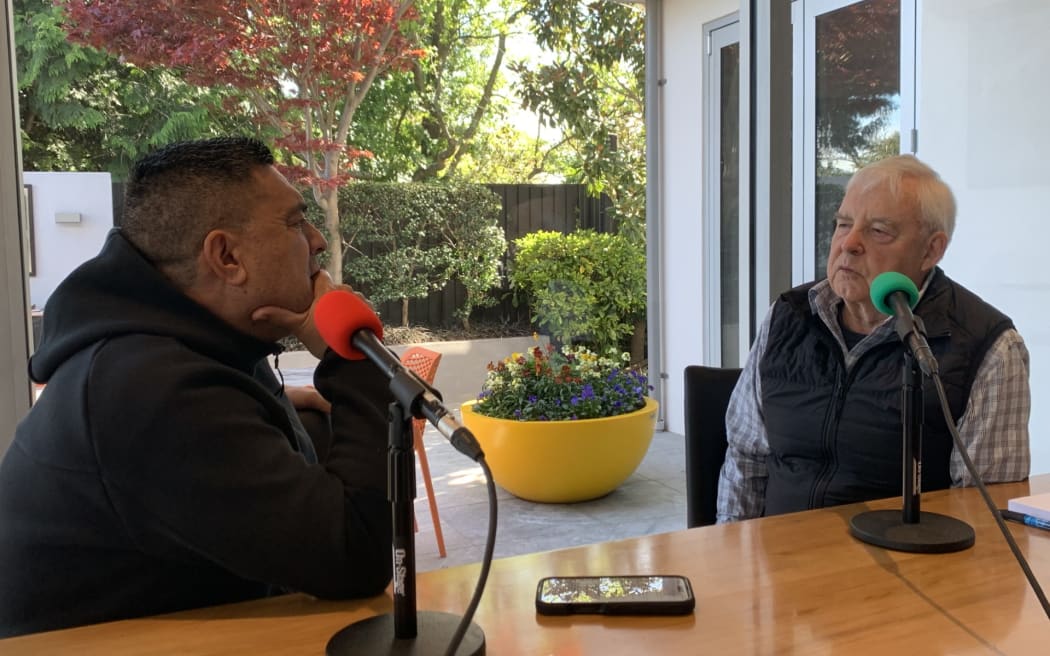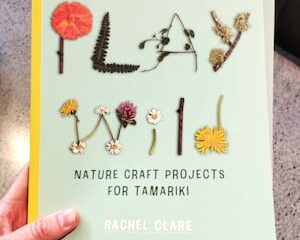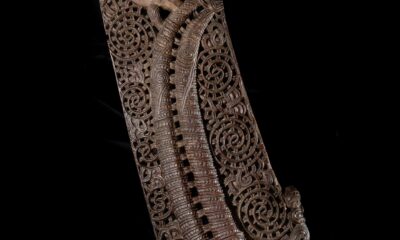Politics
Professor Atholl Anderson Reflects on His Journey in Māori History

Professor Atholl Anderson has dedicated his career to exploring the histories and migrations of peoples throughout the Pacific. Recently, he discussed his lifelong journey into archaeology and history, describing how these fields “chose” him rather than the other way around.
Reflecting on his upbringing, Anderson noted that personal circumstances and early experiences significantly shaped his interests. “What you do in your life is determined by factors that are really beyond your control,” he explained. This perspective has informed his decades-long work as an archaeologist and historian with the Ngāi Tahu iwi, focusing on the first arrivals of Māori in Aotearoa and their interactions with European explorers.
Early Influences and Academic Foundations
A pivotal influence in Anderson’s life was his grandmother, who lived in Hāwera. He recalls visiting her home filled with Māori artifacts, which sparked his interest at a young age. “I remember there being some pounamu pieces and a taiaha,” he said. This exposure, combined with visits to the nearby Turuturu Mokai Historic Reserve, laid the groundwork for his later academic pursuits.
His passion for history deepened at Nelson College, where his teacher, Jerp Patterson, ignited his enthusiasm for the subject. “He made history just so interesting and alive,” Anderson recalled. Following a period working in Scandinavia, Anderson returned to Aotearoa, redirecting his focus toward the Pacific and its rich history.
Discovering the Pacific’s Cultural Margins
Anderson’s academic work often examines the “margins” of cultural history. He describes these areas as places where cultural practices are tested and defined. For instance, his excavations on Enderby Island in the Auckland Islands reveal insights into the survival of Māori culture in challenging environments. “What could they do and what couldn’t they do?” he asked, noting that the climate’s impact on cultural endurance is significant.
His journey into the history of his iwi, Ngāi Tahu, has also been marked by a desire to address concerns within Māori communities regarding archaeology. Many Māori are apprehensive about the excavation of ancestral sites due to fears about what may be uncovered. Anderson emphasizes the importance of careful dialogue about the benefits of archaeological work, ensuring that the interests of the community are prioritized.
Anderson’s involvement with the Waitangi Tribunal since 1987 further illustrates his commitment to Māori history and culture. He was instrumental in researching mahinga kai, traditional food-gathering practices, which helped unite the iwi during a crucial time.
While archaeology offers valuable insights, Anderson acknowledges its limitations. “Archaeology is anonymous. We really don’t know who those people were,” he stated. Bridging the gap between archaeology and history remains a challenge, yet he believes significant progress is being made.
As he continues to explore the complexities of Māori history, Anderson’s work serves as a reminder of the deep connections between culture, identity, and the land. His insights encourage a broader understanding of how historical narratives are shaped and the importance of preserving these stories for future generations.
-

 World2 weeks ago
World2 weeks agoPrivate Funeral Held for Dean Field and His Three Children
-

 Top Stories2 weeks ago
Top Stories2 weeks agoFuneral Planned for Field Siblings After Tragic House Fire
-

 Sports3 months ago
Sports3 months agoNetball New Zealand Stands Down Dame Noeline Taurua for Series
-

 Entertainment3 months ago
Entertainment3 months agoTributes Pour In for Lachlan Rofe, Reality Star, Dead at 47
-

 Entertainment2 months ago
Entertainment2 months agoNew ‘Maverick’ Chaser Joins Beat the Chasers Season Finale
-

 Sports3 months ago
Sports3 months agoSilver Ferns Legend Laura Langman Criticizes Team’s Attitude
-

 Sports1 month ago
Sports1 month agoEli Katoa Rushed to Hospital After Sideline Incident During Match
-

 World3 weeks ago
World3 weeks agoInvestigation Underway in Tragic Sanson House Fire Involving Family
-

 Politics2 months ago
Politics2 months agoNetball NZ Calls for Respect Amid Dame Taurua’s Standoff
-

 Top Stories2 weeks ago
Top Stories2 weeks agoShock and Grief Follow Tragic Family Deaths in New Zealand
-

 Entertainment3 months ago
Entertainment3 months agoKhloe Kardashian Embraces Innovative Stem Cell Therapy in Mexico
-

 World4 months ago
World4 months agoPolice Arrest Multiple Individuals During Funeral for Zain Taikato-Fox





















